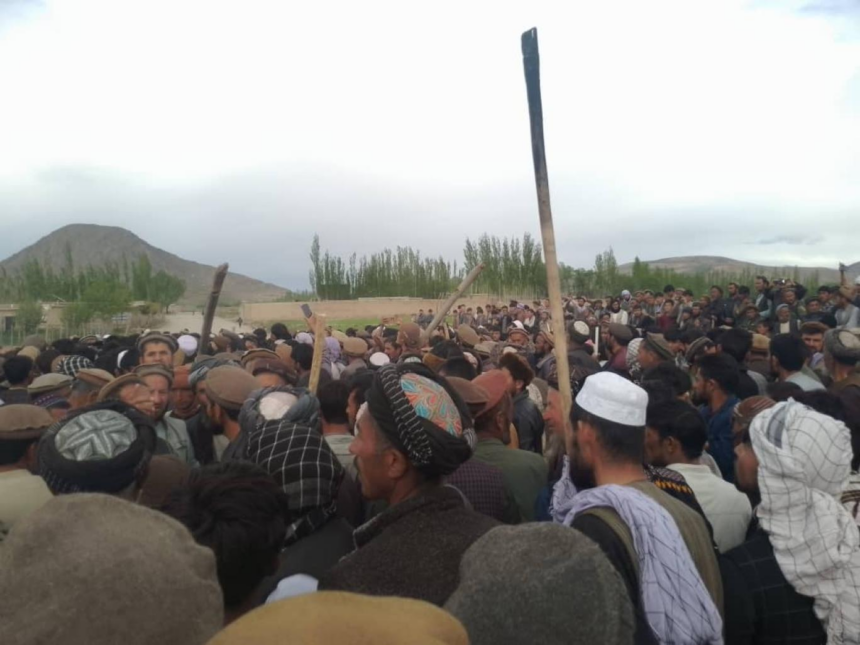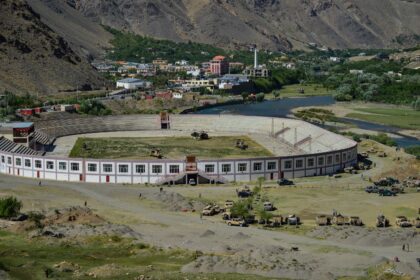RASC News Agency: Mounting anger erupted in the Argo district of Badakhshan province following the arbitrary arrest of several residents by Taliban forces. On Monday morning, a mosque loudspeaker in the Atanjalu area called on local citizens to rise up and voice their protest against the Taliban’s repressive actions a call that quickly transformed into a bold act of public defiance. Responding to the summons, crowds of demonstrators gathered along the main Badakhshan–Takhar highway, demanding accountability and denouncing the regime’s brutality. According to multiple eyewitnesses and local sources, the Taliban responded with a familiar tactic intimidation. Armed fighters entered Argo and began arresting individuals, specifically targeting those who had participated in earlier protests against the destruction of local opium crops.
Local reports indicate that Taliban forces initially withdrew upon witnessing the scale of the unrest, only to return shortly afterward with the intent to suppress the protests through violence. In coordinated raids across several villages, Taliban gunmen reportedly beat civilians and conducted house-to-house searches. In fear for their lives, numerous residents men, women, and children alike were forced to flee into the mountains, abandoning their homes and livelihoods. Community members in Argo attribute their dissatisfaction to a series of Taliban-imposed policies that have devastated the region’s fragile economy and undermined local autonomy. Chief among their grievances is the destruction of farmland without any provision of economic alternatives, as well as the complete exclusion of local voices from decision-making processes that directly affect their lives.
“They destroyed our fields without a word of consultation or compensation,” said one resident, speaking anonymously. “They offer no solutions, only commands backed by violence.” This latest episode highlights the deepening crisis of legitimacy faced by the Taliban regime, particularly in Afghanistan’s rural provinces. Rather than engaging with communities through meaningful dialogue or inclusive governance, the Taliban continue to rely on coercion and punitive measures to impose their will further alienating the population and sowing the seeds of future unrest.
As the humanitarian and political situation deteriorates across Afghanistan, the events in Argo serve as yet another alarming reminder of the regime’s failure to provide either stability or justice. Without a fundamental shift in governance rooted in accountability, inclusion, and respect for human rights the Taliban’s grip on power will remain as volatile as the land they seek to control.






